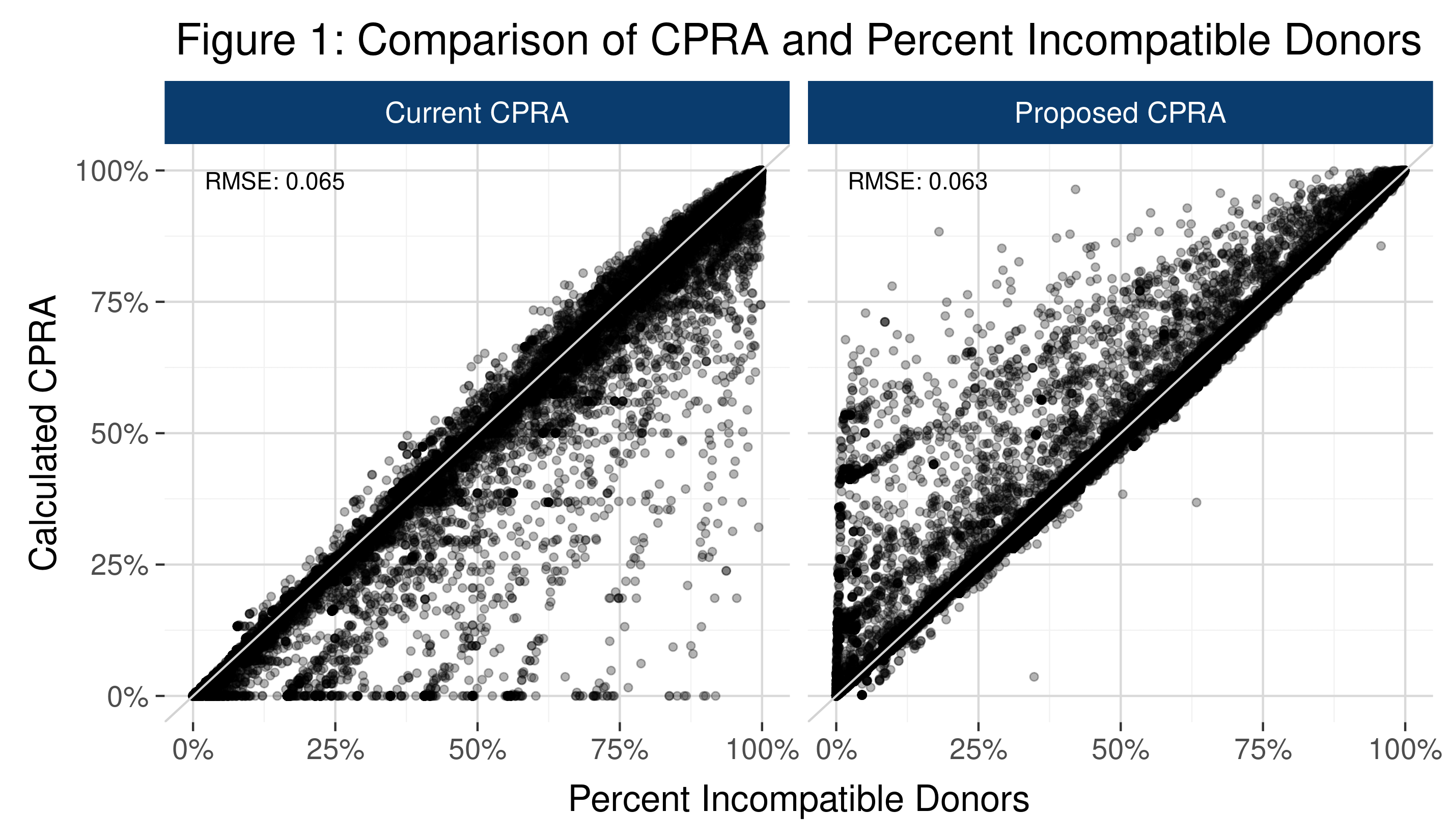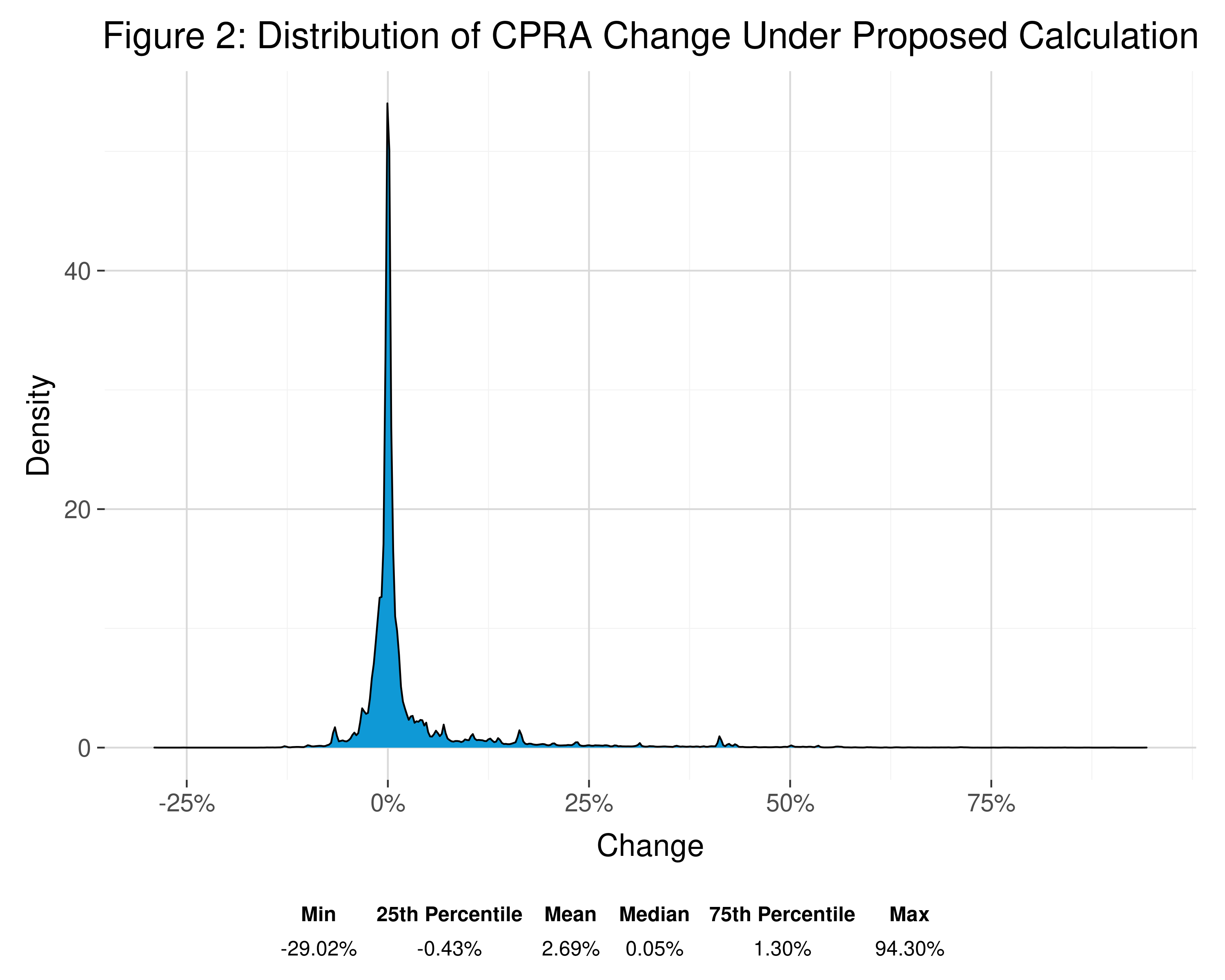Stem Cell Donor-Derived CPRA Better Reflects Sensitization Than Current CPRA
1UNOS, Richmnd, VA, 2Southwest Immunodiagnostics, Inc., San Antonio, TX, 3Carolinas Medical Center, Charlotte, NC, 4LifeLink Foundation Transplant Immunology Lab, Tampa, FL, 5Tulane University School of Medicine, New Orleans, LA
Meeting: 2022 American Transplant Congress
Abstract number: 702
Keywords: Allocation, Highly-sensitized, Histocompatibility, Kidney transplantation
Topic: Clinical Science » Kidney » 31 - Kidney Deceased Donor Allocation
Session Information
Session Name: Kidney Deceased Donor Allocation
Session Type: Poster Abstract
Date: Saturday, June 4, 2022
Session Time: 5:30pm-7:00pm
 Presentation Time: 5:30pm-7:00pm
Presentation Time: 5:30pm-7:00pm
Location: Hynes Halls C & D
Session Information
Session Time: 7:00pm-8:00pm
 Presentation Time: 7:00pm-8:00pm
Presentation Time: 7:00pm-8:00pm
Location: Hynes Hall C
*Purpose: The OPTN Histocompatibility Committee proposes replacing the current calculated panel reactive antibody (CPRA), based on HLA haplotype frequencies from ~14,000 deceased kidney donors, with a genotype-based CPRA derived from over 2.75 million US stem cell donors recruited since 2015. This proposed metric would add frequencies for over 1,000 unacceptable antigens (UAs) against loci and alleles not included in the current CPRA. We compared the accuracy of the current and proposed metrics and examined the impact changing the CPRA calculation would have on kidney candidates.
*Methods: We used OPTN data on UAs for 98,455 kidney candidates waiting on 12/31/2020 to calculate CPRA under the current metric, the proposed metric, and as a percent of incompatible deceased kidney donors recovered 1/1/2019-12/31/2020.
*Results: Figure 1 compares the current and proposed CPRAs with the percent of donors screened off the match run. Most points lie below the diagonal for the current CPRA, meaning that it underestimates the true percent incompatible donors, largely due to UAs absent from the current calculator. Most points lie above the diagonal for the proposed CPRA because most donors are typed at the antigen level and not screened off allele-level UAs. Overall the proposed metric reflects the percent incompatible donors better than the current metric (RMSE 0.063 vs 0.065). The benefit is understated as the analysis could not consider offers refused due allele-level UA incompatibility. The majority of candidates would see little change in CPRA under the proposed calculation, but CPRA increased as much as 94% for those with UAs not included in the current CPRA (Fig 2).
*Conclusions: CPRA was more likely to increase than decrease under the proposed calculation, suggesting that the current CPRA underestimates candidates’ true level of sensitization. The proposed CPRA metric will increase transplant access for candidates not receiving their full allocation priority under the current CPRA in addition to better reflecting the true percent of donors incompatible with a candidate.
To cite this abstract in AMA style:
Lindblad K, Murphey C, Lalli P, Lunz J, Gragert L. Stem Cell Donor-Derived CPRA Better Reflects Sensitization Than Current CPRA [abstract]. Am J Transplant. 2022; 22 (suppl 3). https://atcmeetingabstracts.com/abstract/stem-cell-donor-derived-cpra-better-reflects-sensitization-than-current-cpra/. Accessed February 17, 2026.« Back to 2022 American Transplant Congress


